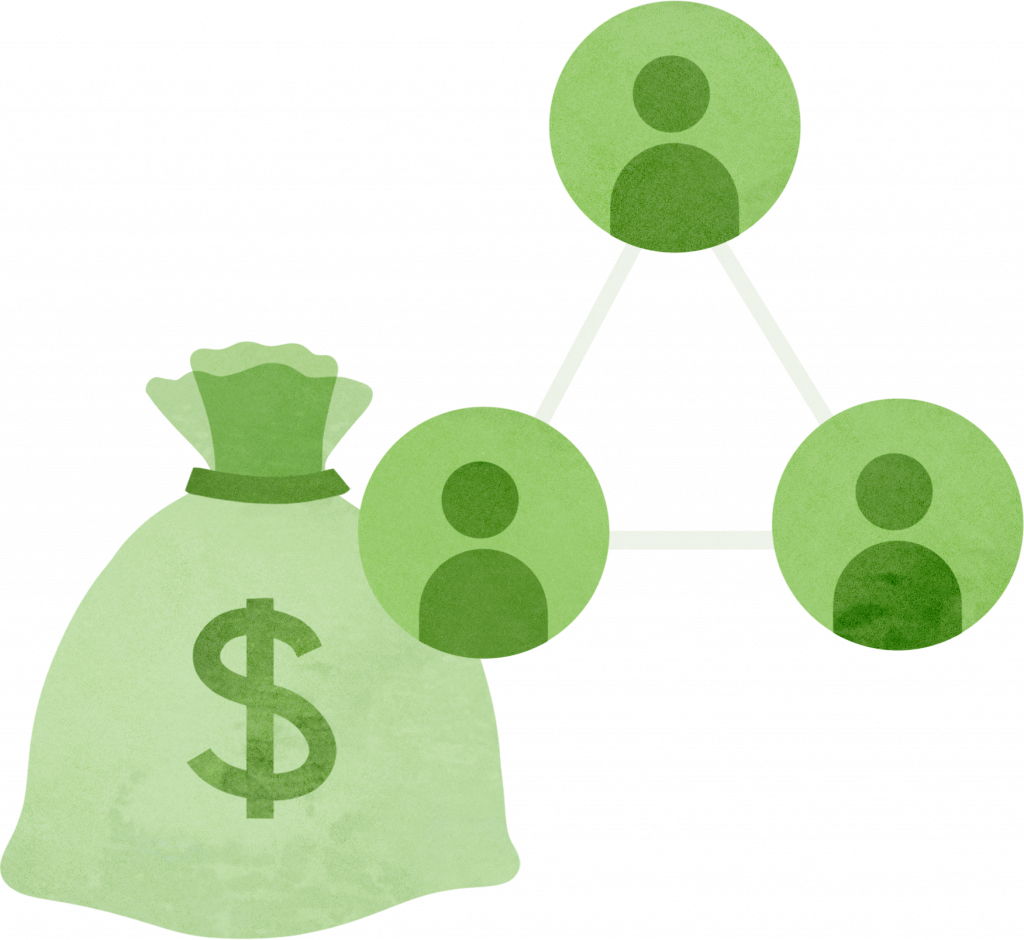Despite an increase in the number of citizen science initiatives, most of them find scaling beyond small scale pilots or localised community efforts challenging. Issues arise primarily on two fronts – a lack of sustained funding, and an inability to create impact at a policy level using the data they have collected. As highlighted in Play 1, funding efforts for environment data collection efforts are usually temporally limited or restricted to efforts that prioritise collection of large datasets, which is often difficult for citizen science initiatives. Moreover, the essential utility of many citizen science efforts lies in their ability to collect community level data that can adequately fill/ bolster data gaps in public datasets. In addition to the strategies set out in Play 1, this Play looks specifically at strategies that can be employed to increase opportunities for citizen science initiatives to contribute with their data collection, as well as better funding opportunities – both of which can then have an effect on the sustainability of these initiatives.

Challenge e3.1
Limited accountability and transparency around Environment, Social and Corporate Governance (ESG) reporting and environmental data sharing by private companies
Studies indicate that the growth of ESG investment is inextricably linked to data. Companies that pay to collect and analyse environmental data consider those datasets to be business assets. As a result, they are generally not eager to share them. Companies often treat environmental data as confidential business information. Data may offer the company that collected them some competitive advantage over their competitors. The preservation of such data can come in conflict with the imperative to share research data. The majority of valuable data is siloed with private companies, inaccessible for the wider public. Moreover, in countries with weak climate information structures, this lack of data can also affect larger businesses and limit their investments. Companies are using data-led innovation to unlock sustainability gains in line with stated commitments to net-zero carbon emissions, in line with the goals of the Paris Agreement. Turning that data into actionable insights can help power positive change while improving profitability at every level.



Strategy e3.3.1
Employing data verification mechanisms and maintaining extensive metadata

According to the Carbon Disclosure Project, a non-profit group that runs an environmental disclosure system, private companies trail public counterparts when it comes to reporting greenhouse gas emissions and climate risks. Companies are also facing increased pressure from investors, lenders and regulators to disclose their environmental and social activities. Assuring sustainability disclosures that are accurate should enable the government, CSOs, funders and the private sector to better understand the impacts of economic activities on the environment. Trustworthiness of sustainable disclosures should enable companies and investors to differentiate themselves from less sustainable counterparts and attract investment.
Within the ESG framework, current ratings used to measure sustainability performance are often limited and flawed. According to an MIT study, the divergence in ESG ratings is based on a “fundamental disagreement about the underlying data.” The EU in its Non-Financial Reporting Directive has articulated the scope of wide potential audience in assessing a company’s environmental footprint encompassing investors, consumers, civil society, employees impacted by company’s activities. Many existing data institutions steward data that is or may become relevant for ESG ratings. E.g. iNaturalist, a citizen science project empowers people to document information about flora and fauna. The Energy Data Co-op allows people to pool and share data to improve the efficiency of their homes by changing how energy is used. These initiatives could play a role in stewarding environmental data that is relevant for rating agencies and regulators which can help investors and fund managers to make informed decisions. This can also help third parties to evaluate and compare information across different companies and products. It could be possible to fill some of the data gaps from new and unique sources which can help investors to help evaluate a company or investment.

Challenge e3.2.1
Funding challenges for citizen science projects

Access to funding remains one of the most common challenges that citizen science projects encounter. Overcoming funding challenges is critical to enhance the capacity of citizen science and its impact on social and environmental impacts. Being largely volunteer-led initiatives, funding is crucial to the ability of citizen science initiatives to upskill, become technologically more adept, restructure for scale and thus, sustain themselves. Beyond funding, the support and guidance of investors can play a big role in ensuring the success of revenue models and dynamic adaptation to changing economic landscapes.




Strategy e3.2.1
Identify and amplify networks to facilitate funding for citizen science efforts

Persuading funding agencies and consequently, securing funding can be difficult – particularly if schemes for funding are not designed to cater to citizen science initiatives and structures. It is also crucial that citizen science organisers understand local communities and involve them in co-design initiatives, bolstering their participatory frameworks while approaching philanthropic or other funders. Considerations such as data types, representation of communities, feedback loop, insight sharing, community needs, social relevance, and strategic priorities are just as relevant to taking such initiatives out of microcosms or pilot-frozen stages.
In order to adequately cover these pre-funding bases, and to gain support in funding proposals or applications, there are currently various organisations who help citizen science organisers in getting funding. For example, Stickydot, an organisation based in Brussels helps citizens science organisers in the application process for seeking funding. Similarly, Citizen Science Network – Austria provides information on existing and completed citizen science projects, mentoring, networking and suitable partners to citizens science organisers.
With a growing number of promising stewards in the environmental space, such networks that both connect stewards and aid them in gaining access to funding are a crucial part of the ecosystem. Existing stewards and citizen science initiatives that successfully secure funding cycles can act as nodes in these networks to aid other initiatives, while funders must grow increasingly cognisant of the channels, challenges and focus areas of citizen science funding.
